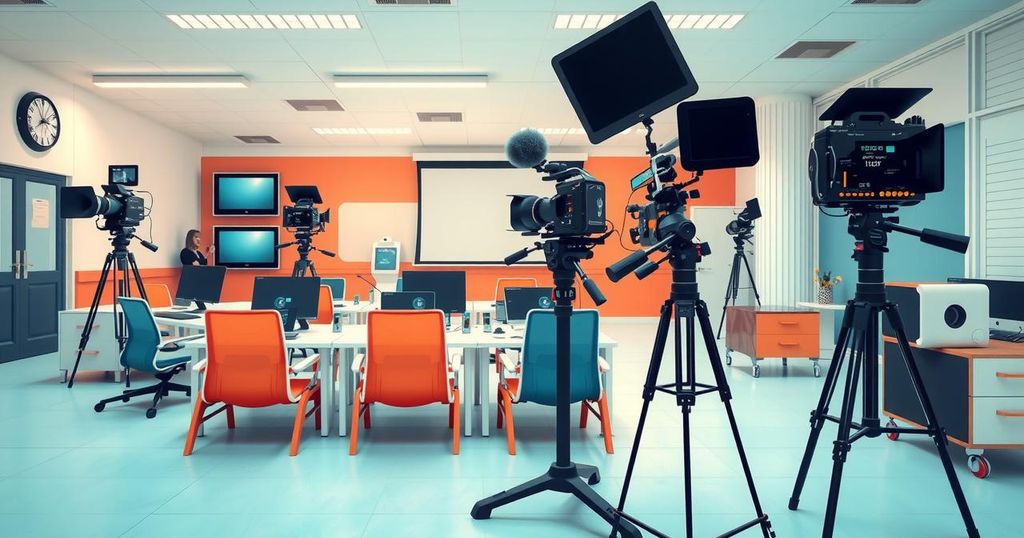AI’s Role in Redefining Filmmaking Education: Insights from Recent Study
A recent study on AI in film education investigates how students interact with AI tools, revealing mixed feelings about their usefulness versus authenticity. Many see potential for enhancing creativity, but concerns remain. The research emphasizes a need for a framework separating technical and artistic processes to encourage personal expression. The classroom’s role is vital in shaping how AI influences future filmmaking.
Artificial Intelligence (AI) is diving deep into the world of film education, stirring up quite the insightful conversation about creative learning and artistic innovation. A recent study explores this phenomenon, probing into how students in film schools use AI tools—whether as helpful allies in their creative processes or complicated forces in their artistic expression. A blend of hands-on classroom experiments and surveys from diverse learning environments reveals a complex relationship with AI.
Interestingly, while many students found text-based AI tools beneficial, they often viewed visual outputs from AI as less authentic, overly polished, or even somewhat oppressive. Here lies a paradox: students recognizing AI’s creative potential were also wary about its encroachment on genuine artistry. This tension between excitement and skepticism highlights a nuanced dialogue—students are negotiating with an evolving technological landscape.
The findings of the study highlight important learning outcomes regarding AI’s educational integration in filmmaking. By providing a framework that separates technical skills from artistic expression, it suggests that AI could bolster cinematic creativity if applied judiciously. Crucially, this framework emphasizes maintaining room for personal experimentation, failure, and the unique voice of each student—elements that are at the heart of any compelling filmmaking experience.
Ultimately, the classroom offers a vital platform where the future of avant-garde cinema could be shaped, navigating the intricate interplay between human creativity and AI technology. As film schools embrace these innovations, they may be fostering the next wave of expressive filmmakers, equipped to tackle the challenges and opportunities presented by AI.
Such developments signify a critical turning point in film education. As AI tools become commonplace, understanding their impact is essential for students and educators alike. Integrating AI thoughtfully into the filmmaking curriculum could redefine what it means to create, innovate, and express through cinema. This whispers of a promising, yet undeniably complex future for filmmakers in training and the cinematic art form as a whole.
The study highlights the significant role AI may play in shaping the future of film education, revealing a complex relationship among students. While many find AI tools helpful, there exists a tension stemming from concerns over authenticity and artistic integrity. As film schools begin to adapt to these changes, there’s a pivotal opportunity to redefine filmmaking and nurture the next generation of expressive creatives with AI integrated thoughtfully. Ultimately, it’s a matter of finding balance—the future of cinema may depend on it.
Original Source: www.frontiersin.org




Post Comment